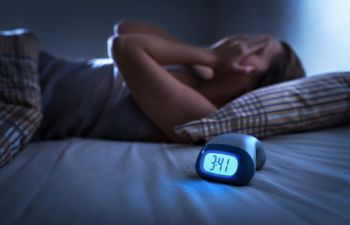
Obstructive sleep apnea (OSA) is a serious condition that can interfere with your health and well-being, as well as your quality of life. Treatment for this condition usually involves using a continuous positive airway pressure machine, or CPAP as it is commonly called. This is the preferred method of treatment; however, sometimes mild to moderate OSA can be treated with an oral appliance.
CPAP, the Gold Standard for Treatment
In general, the CPAP machine is the gold standard in treatment for OSA. Although some articles may recommend a mouth guard as an alternative treatment, it is worth mentioning that most doctors who are knowledgeable in this area generally encourage the use of a CPAP machine.
The machines used today to treat OSA are considerably quieter and more comfortable that those used years ago. They are streamlined, lightweight and very quiet. There is also a variety of machines to suit the individual needs of patients. Your sleep specialist will work with you to identify the right CPAP tools for you so you can have a good night’s sleep.
Oral Devices for OSA
There are various reasons why a patient may prefer to use an oral device or why a doctor might recommend one over the CPAP machine. The oral device is designed to reposition the jaw or tongue so the upper airway stays open during sleep. Unfortunately, these devices can also be uncomfortable and may not work for everyone who opts to use them. People with mild to moderate OSA are the best candidates, and those with severe OSA who cannot tolerate a CPAP machine.
There are three main types of oral appliances used for OSA:
- Mandibular advancement devices – these hard plastic appliances with hinges and screws are molded to fit over your lower and upper teeth. They are designed to push your lower jaw forward by tightening the screws.
- Mouth Guards – these also help to reposition the lower jaw, but are less expensive than the above. You can get “boil and bite” mouth guards, but it is best to check with your sleep doctor before purchasing.
- Tongue retaining devices – the tongue retaining device is a soft plastic splint that holds the tongue forward and out of your mouth during sleep. The downside of this device is that it can be very uncomfortable, and it causes dry mouth.
Oral appliances can be comfortable if they are well fitted, although they make take getting used to at first. Oral appliances can also cause your teeth to feel tender in the beginning. There is also the possibility that your bite may change, or teeth may move over time. Regular dental checkups are important if you use an oral appliance.
OSA can be serious and it is important that it be diagnosed and treated correctly. Contact the Atlanta Sleep Apnea Treatment Center to make an appointment and discover the best way to treat your OSA.
Posted on behalf of
1820 The Exchange SE, #600
Atlanta, GA 30339
Phone: (678) 401-7615
Mon - Thu: 8:30 AM – 5:30 PM
Closed for lunch: 12:30 PM - 1:30 PM
